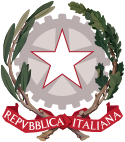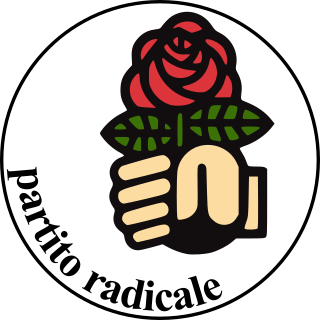
A referendum, in the Italian legal system is a request directed to the whole electorate to express their view on a determined question. It is the main instrument of direct democracy in Italy.

Bulgaria elects on national level a head of state - the president - and a legislature. The president is elected for a five-year term directly by the people. The National Assembly has 240 members, elected for a four-year term by proportional representation in multi-seat constituencies with a 4% threshold. Bulgaria has a multi-party system, in which no one party often has a chance of gaining power alone, and parties must work with each to form governments.

A seven-question referendum was held in Belarus on 24 November 1996. Four questions were put forward by President Alexander Lukashenko on changing the date of the country's independence day, amending the constitution, changing laws on the sale of land and the abolition of the death penalty. The Supreme Council put forward three questions on constitutional amendments by the Communist and Agrarian factions, local elections and the national finances.

A constitutional referendum was held in France on 5 May 1946. Voters were asked whether they approved of a new draft Constitution proposed by the Constituent Assembly elected in 1945.
A referendum on the Order law was held in Luxembourg on 6 June 1937. Voters were asked whether they approved of the new law, which would ban any political party that sought to change the constitution or national legislation by violence or threats. The law would result in the dissolution of the Communist Party, and became known as the Maulkuerfgesetz.
A Spanish political reform referendum was held on Wednesday, 15 December 1976, to gauge support for either the ratification or repealing of the Political Reform Act which had been approved by the Spanish Cortes on 18 November 1976. The question asked was "Do you approve of the Political Reform Bill?". The referendum resulted in 97.4% of voters supporting the bill on a turnout of 77.7%.

A five-part referendum was held in Italy on 17 May 1981. The proposals included repealing laws on public order, life sentences, gun licences, abortion. All were rejected by voters, with no proposal receiving more than 32% of the vote.

A referendum on abolishing the wage escalator was held in Italy on 9 June 1985. The escalator allowed for the automatic growth of the salaries of Italian workers at the same rate as inflation. This mechanism was accused of causing high inflation which damaged the lira during the 1980s, with a 20% annual rate. Voters were asked whether they wanted to repeal a law passed by the government of socialist Prime Minister Bettino Craxi which had strongly reduced this automatic mechanisms. The referendum was called by the Italian Communist Party. Those voting "yes" wanted to restore the automatic growth of the salaries as the inflation ratio, and those voting "no" wanted to retain the law which tried to reduce the high inflation.

An advisory referendum on the European Economic Community was held in Italy on 18 June 1989, alongside European elections. The non-binding referendum was called by all main parties with a special law, because the Italian Constitution does not allow this type of question. The Italian political spectrum wanted to re-affirm the popular support of Italy to the process of European integration, particularly giving to the European Parliament a popular, constitutional mandate in event of a future European Constitution.

A referendum on the electoral law was held in Italy on 9 June 1991. Voters were asked whether the clause of the law on the number of preference votes should be scrapped. The result was 95.6% in favour, with a turnout of 65.1%.

An eight-part referendum was held in Italy on 18 April 1993. Voters were asked whether they approved of the repealing of laws on limiting intervention of local health units in dealing with environmental pollution, limiting the use of medicinal drugs, political party finances, the use of proportional representation in the Senate of Italy and the regulation of public banks, as well as the abolishment the Ministry of Agricultural, Food and Forestry Policies, the Ministry of State Holdings, the Ministry of Tourism. All eight proposals were approved with support ranging from 55.3% to 90.3%.

A referendum on creating administrative regions was held in Portugal on 8 November 1998. Two proposals were put to voters, the first on implementing the regions, and the second specifically asking whether voters approved of the new region for their area. The proposals were rejected by wide margins by voters.
A four-part referendum was held in Switzerland on 11 May 1884. All four were rejected by voters.
Five referendums were held in Switzerland in 1891. The first was held on 15 March on a federal law on federal officials who had become unemployable due to disability, and was rejected by 79.4% of voters. The second was held on 5 July on a constitutional amendment, and was approved by 60.3% of voters. Two referendums were held on 18 October, one on revising article 39 of the federal constitution and one on a federal law on Swiss tariffs; both were approved. The last was held on 6 December on the question of whether the federal government should purchase the Swiss central railway, but was rejected by 68.9% of voters.
A three-part referendum was held in Switzerland on 4 October 1896. Voters were asked whether they approved of a federal law on guarantees in the cattle trade, a federal law on the accounting system for the railways and a federal law on the disciplinary penal code for the federal army. Whilst the law on the railways was approved, the other two were rejected by voters.
Nine referendums were held in Switzerland in 1975. The first was held on 2 March on an amendment to the Swiss Federal Constitution on the article on the economic cycle. Although it was approved by a majority of voters, it did not receive the support of a majority of cantons, so was rejected. The next five were held on 8 June on protecting currency (approved), financing the national road network (approved), amending the general tariff (rejected), increasing taxes the following year (approved) and restricting federal expenditure (approved). The final three were held on 7 December on a constitutional amendment on the right to residence and welfare benefits (approved), a constitutional amendment on water management (approved) and a federal law on the import and export of agricultural goods (approved).
Fourteen referendums were held in Switzerland in 1977. The first three were held on 13 March on popular initiatives on foreign infiltration, limiting naturalisation and changing the rules on referendums on treaties. All three were rejected, whilst the counter-proposal was approved. The next two were held on 12 June on changes to sales tax and direct federal taxation (rejected) and on tax harmonisation (approved).
Eight referendums were held in Switzerland during 2002. The first two were held on 3 March on popular initiatives for Switzerland to join the United Nations and to reduce working hours. UN membership was approved, whilst the shorter working hours proposal was rejected. The next two were held on 2 June on amending the penal code regarding abortion, which was approved, and a popular initiative "for mother and child", which was rejected.
Fifteen referendums were held in Switzerland during 2000. The first five were held on 12 March on reforming the judiciary and four popular initiatives; "for speeding up direct democracy ", "for a just representation of women in federal authorities", "for the protection of men against manipulations in procreation technology" and one to reduce motorised road by 50%. Whilst the judiciary reform was approved, all four popular initiatives were rejected. The next referendum was held on 21 May to authorise sectoral agreements between Switzerland and the European Union, and was approved by around two-thirds of voters.










